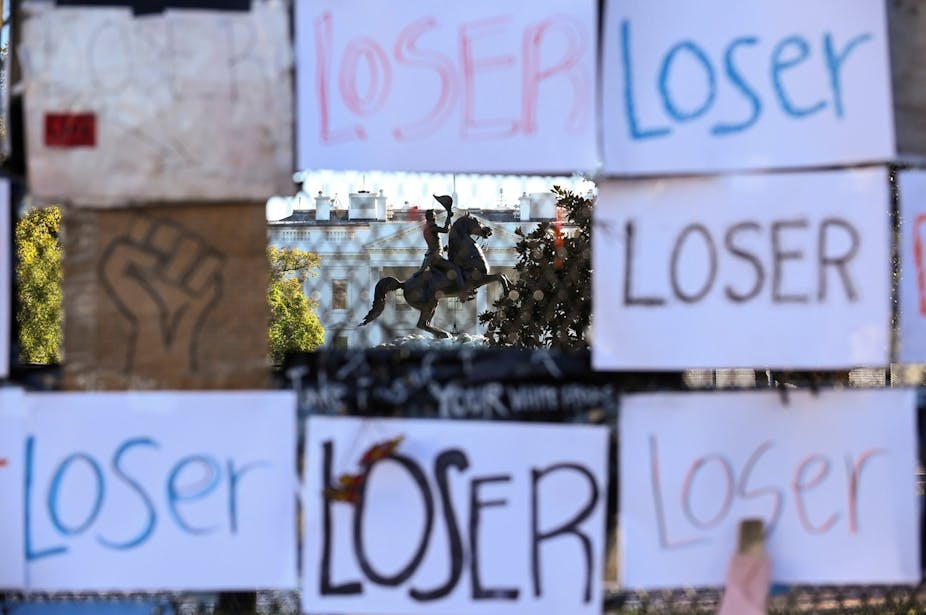While the result of the United States presidential election remains hanging in the balance, it seems Vice President Joe Biden will prevail and replace President Donald Trump next year.
The question then is what impact will a Biden presidency have on Southeast Asia, especially on the issue of human rights?
Different from Trump, Biden from the opposition Democratic Party has expressed more concern about human rights issues.
During the campaign, Biden boldly declared that “human rights will be at the core of US foreign policy”.
However, given the importance of the region to the US in winning the contest with China, it is expected Biden would make some adjustments to ensure his policy would not hurt Southeast Asian states, many of which have perpetrated human rights violations.
The China factor
Overall, US foreign policy always stresses the importance of human rights.
However, the US is also willing to turn a blind eye to human rights violations committed by a country as long as it does not interfere with its strategic goals.
As the US has a big mission to win the hearts of Southeast Asian states to help balance China’s growing power in the region, the inconsistent US approach to human rights also applies to Southeast Asia.
Therefore, despite Biden’s commitment to human rights, like his predecessors he is expected to ignore human rights violations in the region.
Almost every country in Southeast Asia has human rights problems.
Myanmar, for instance, has been persecuting its ethnic Muslim Rohingya minority for years.
Thailand has been persecuting its critics.
Political persecution also happens in Cambodia, Laos, the Philippines and Vietnam.
Brunei still maintains its anti-LGBT law, which is at odds with the Democratic Party’s platform that emphasises protection of LGBTQ+ communities all over the world.
And in Indonesia, the world’s third-largest democracy, past human rights cases since the mid-1960s, including recent ones in Indonesia’s easternmost Papua island, is an issue that won’t go away.
However, in view of how strategically important the region is, it is very doubtful that an incoming Biden administration would be that forceful in pushing the issue of human rights, considering that both Trump and Biden agree that China is the biggest security threat to the United States.
Biden and Trump’s predecessors have shown the same attitude for different kinds of missions.
For instance, in the case of President Ronald Reagan, while in the end he helped push for democratisation in the Philippines, he was not above supporting the dictator of the Philippines, Ferdinand Marcos, at the height of his power, as long as it suited American interests in its fights against communists.
Similarly, successive American presidents from Lyndon Johnson to Bill Clinton supported Suharto’s authoritarian regime in Indonesia. Suharto was accused of leading the killing of hundreds of thousands of people due to their alleged connections with the Indonesian Communist Party.
Interestingly, while the US is going soft on Southeast Asian countries, the US will continue playing the human rights card to undermine China’s power in the region.
Trump’s administration has tried to rally Indonesia, with the world’s largest Muslim population, to take a stand against China’s treatment of its Muslim population in Xinjiang.
Indonesian curse
It is possible, however, that the Democratic Party, fresh from victory and in trying to differentiate itself from the Trump administration, would push for the Biden administration to embrace human rights as foreign policy.

One of the 2020 Democratic Party platform’s objectives is “safeguarding and promoting the rights of Indigenous peoples”.
This may anger countries like Indonesia, which is very sensitive to any interference in its affairs in Papua. Since Suharto’s regime, Papua has been dealing with pressure from separatist groups eager to declare independence from Indonesia.
This may explain why Indonesia favours more US presidents from the Republican Party. Even though Republican presidents also talk a lot about human rights, they tend to be more business-like in dealing with other states and less likely to be picky about human rights issues. In comparison, Democratic presidents are far more concerned about human rights and willing to interfere in a foreign state’s affairs based on these concerns.
This was evident when the Democrats’ Barack Obama in 2011 announced the United States would build a military base in Darwin, Australia, to house its marines. The reaction from Indonesia was so hostile that both President Obama and the then Australian foreign minister, Julia Gillard, had to assure the Indonesian president, Susilo Bambang Yudhoyono, that the base had nothing to do with Indonesia’s Papua.
In contrast, when Vice President Mike Pence announced on November 17 2018 that the United States and Australia would join forces to develop a new naval base in Papua New Guinea, it didn’t cause a strong reaction in Indonesia.
And it may be wise for Biden to visit Indonesia in the near future should he wish to be re-elected in 2024. That’s not only because of the importance of Indonesia as Southeast Asia’s largest economy but it is also a founding and influential member of the region’s only intergovernmental institution, ASEAN.
It is possible to joke that there is perhaps also an Indonesian curse for the running US president.
Under this curse, a US president who never visits Indonesia during his tenure will not be re-elected.
Coincidence or not, Trump is the latest president who has never visited Indonesia during his term. Trump’s predecessors, Jimmy Carter and George H.W. Bush, also never visited Indonesia during their tenure and each only lasted one term.
Reagan might not have visited Indonesia during his first term, but he made it up by visiting the country in the second year of his administration.

